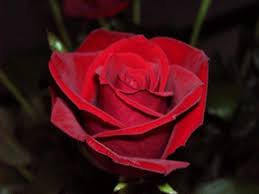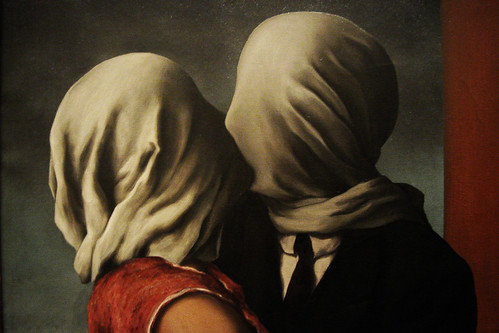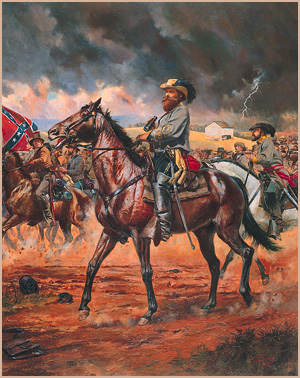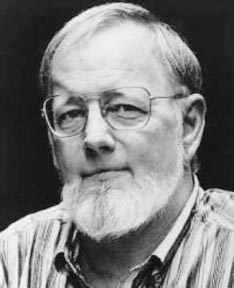Power Quote: Harold Bloom
.jpg)
If the essence of poetry is invention, as Dr. Johnson rightly maintained, then the classical Walpurgis Night shows us what poetry essentially is: a controlled wildness, a radical originality that subsumes previous strength, and, most of all, the creation of new myth.
— The Western Canon , “Goethe’s Faust, Part Two: The Countercanonical Poem”
Power Quote: Harold Bloom

I myself, as a student of gnosis, whether poetic or religious, judge the poem to be neither truth nor fiction but rather Dante’s knowing, which he chose to name Beatrice. When you know most intensely, you do not necessarily decide whether it is truth or fiction; what you know primarily is that the knowing is truly your own.
– The Western Canon, “The Strangeness of Dante: Ulysses and Beatrice”
Power Quote: Harold Bloom
Literature is not merely language; it is also the will to figuration, the motive for metaphor that Nietzsche once defined as the desire to be different, the desire to be elsewhere. This partly means to be different from oneself, but primarily, I think, to be different from the metaphors and images of the contingent works that are one’s heritage: the desire to write greatly is the desire to be elsewhere, in a time and place of one’s own, in an originality that must compound with inheritence, with the anxiety of influence.
– “Preface and Prelude” to The Western Canon
Power Quote by Angela Carter: A Fancy Way of Saying “Eat Me”
 From the short story, “The Lady of the House of Love” . I would normally stick my tongue between my two fingers, but this is a much fancier and therefore a better way of saying eat me? This is a reaction to all the uncalled for harshness of life, for all the sick joy that people get from their little, or big, acts of hostility (I know, I should save it for Mean Monday, oops. I read the story this weekend, so it is fresh in my mind):
From the short story, “The Lady of the House of Love” . I would normally stick my tongue between my two fingers, but this is a much fancier and therefore a better way of saying eat me? This is a reaction to all the uncalled for harshness of life, for all the sick joy that people get from their little, or big, acts of hostility (I know, I should save it for Mean Monday, oops. I read the story this weekend, so it is fresh in my mind):
And I leave you as a souvenir the dark, fanged rose. I plucked from between my thighs, like a flower laid on a grave. On a grave.
Power Quote from Lisa Yuskavage
I don’ t think there is an uninteresting person alive. It’s just that not everyone has access to themselves, to the full range of thier emotional life. This is why my work often embarrasses me and why I need it to embarrass me. Being embarrassed allows me to access more surprising pictorial solutions. I don’t know precisely how, but it seems to function as a clarifying agent.
Power Quote: Gordon Lish

God, the only thing to do is to have a good laugh at the joke. Ha ha ha. You hear me laughing at the joke? I am laughing at the joke. Ha ha ha. I am having a good laugh at it. Ha ha ha. “This is me.” “This is you.” Ha ha ha.
–Zimzum
Power Quote: M.L. Rosenthal

Behind much of [Edward Arlington] Robinson’s work, in both its more successful and its less successful aspects, lies a deeply American obsession with the theme of failure: failure of a career, failure of a social class or a society, failure of a needed meaning to sustain itself–and, finally, the inevitable failure of life to resist death’s encroachment. Remembering Eliot’s motifs of sexual and spiritual failure and Pound’s savage complaints at a culture’s failure to realize itself, we see how much those poets have in common with Robinson after all. ‘When we think of America,’ said D.H. Lawrence in his introduction to Edward Dahlberg’s novel Bottom Dogs, ‘and of her huge success, we never realize how many failures have gone, and still go to build up that success.’
– “Rival Idioms: The Great Generation” (being Chapter Five of The Modern Poets: A Critical Introduction)
**BONUS**
Read Robinson’s “Miniver Cheevy”
Read Robinson’s “Richard Corey”
Read Lawrence’s “Last Lesson of the Afternoon”
Enough failure for one day? Ready for earthy pagan Modernist resurrection sex?
Read Lawrence’s “New Heaven and Earth”

Daily affirmation.



